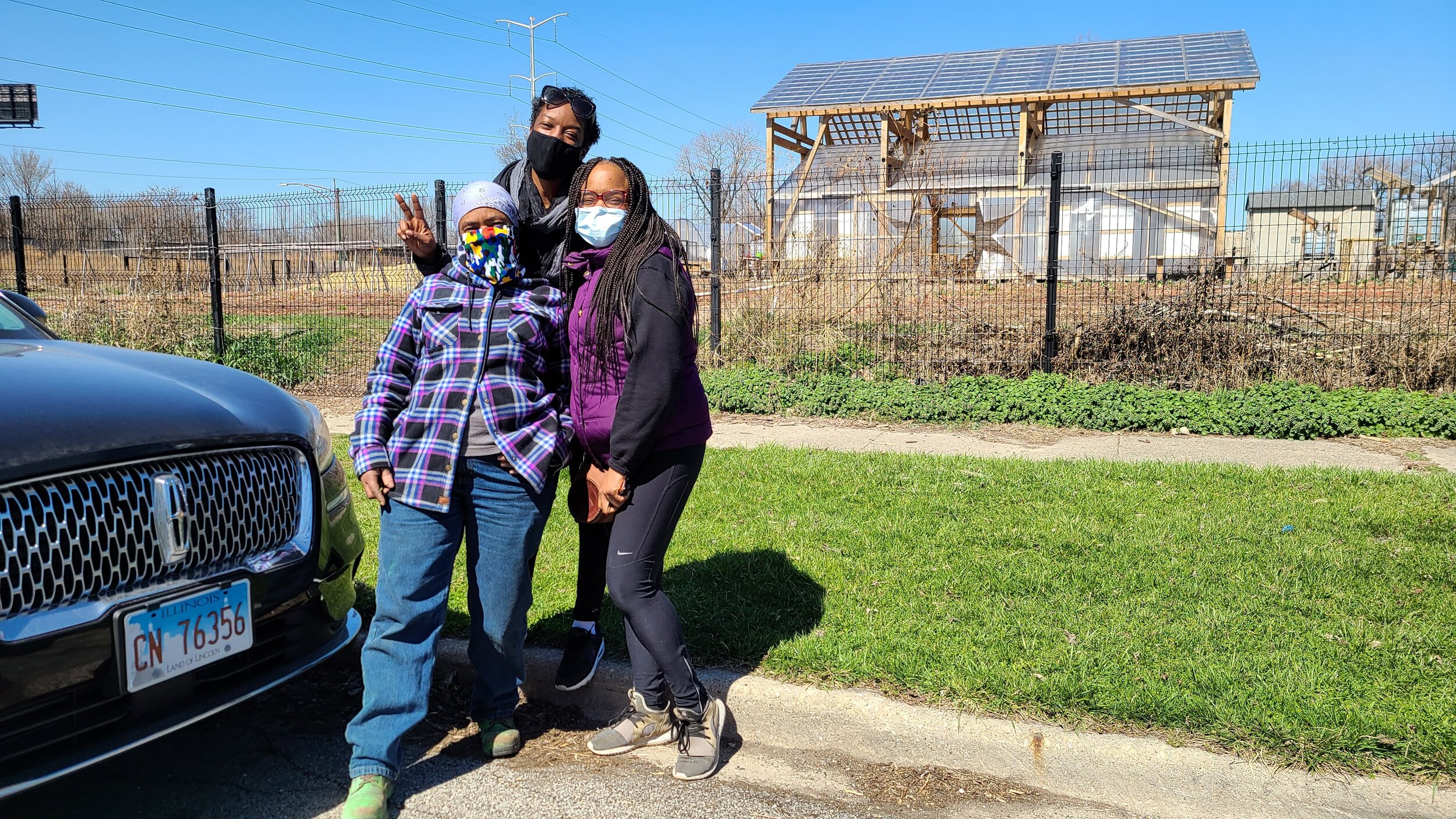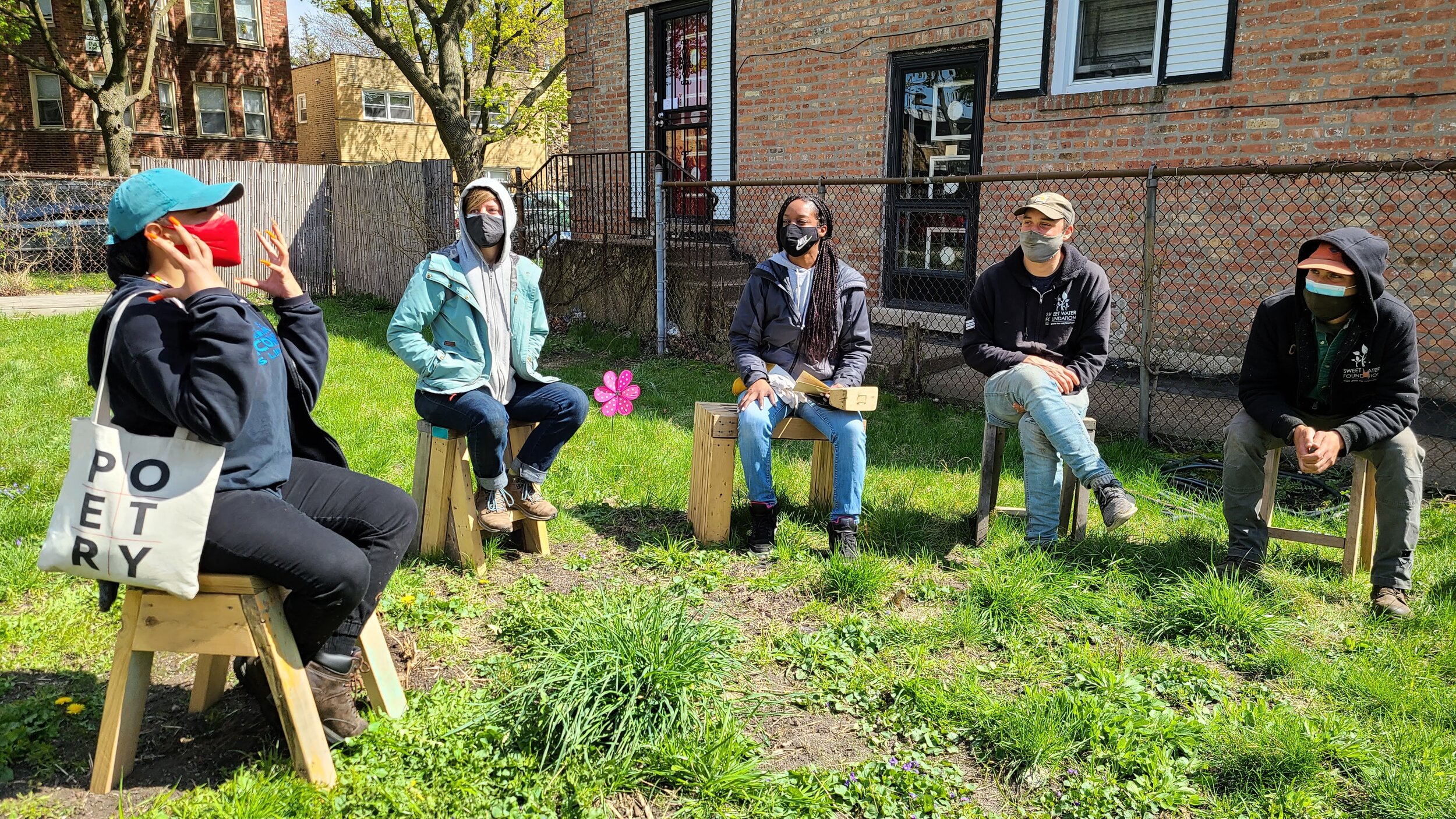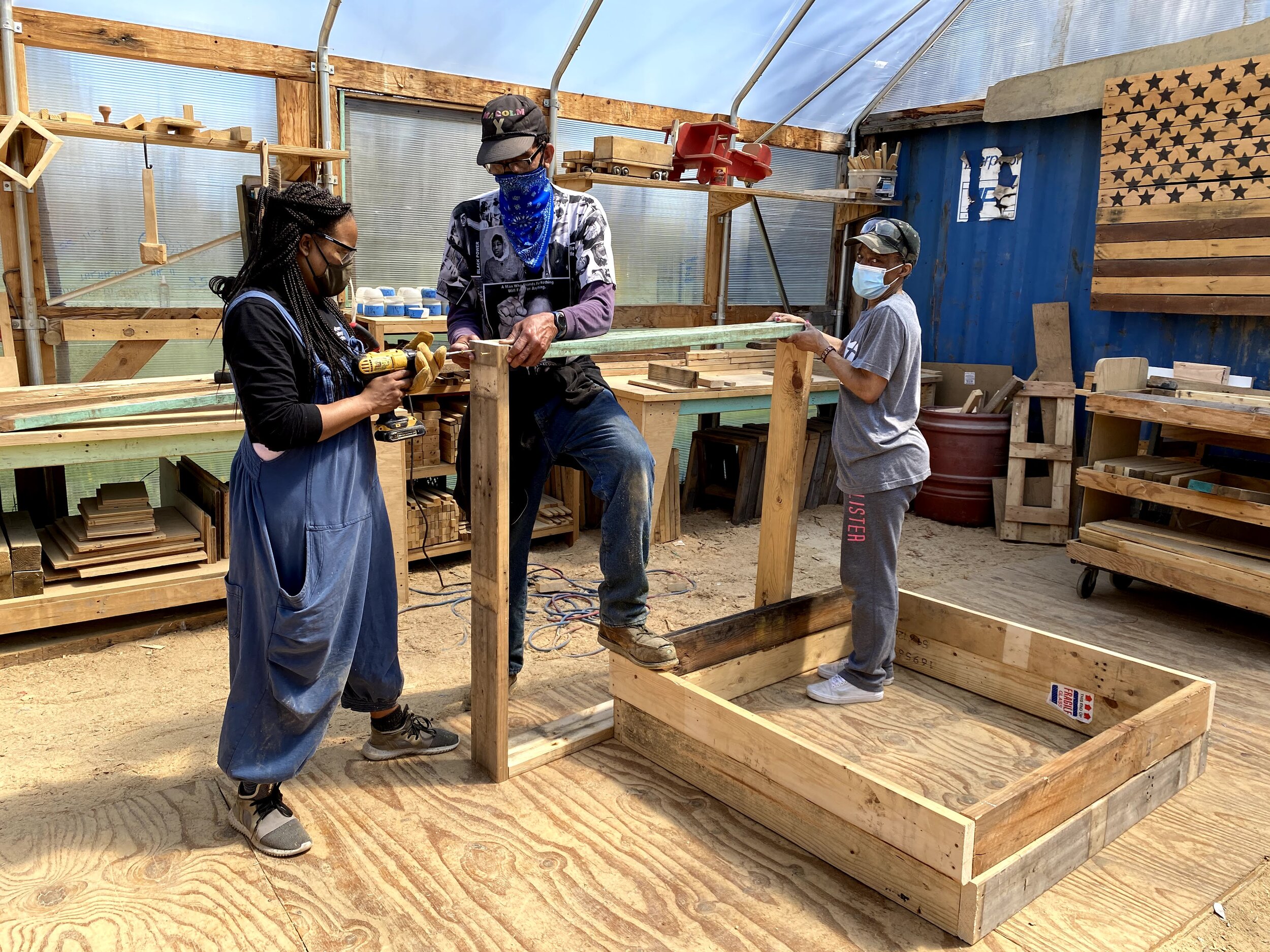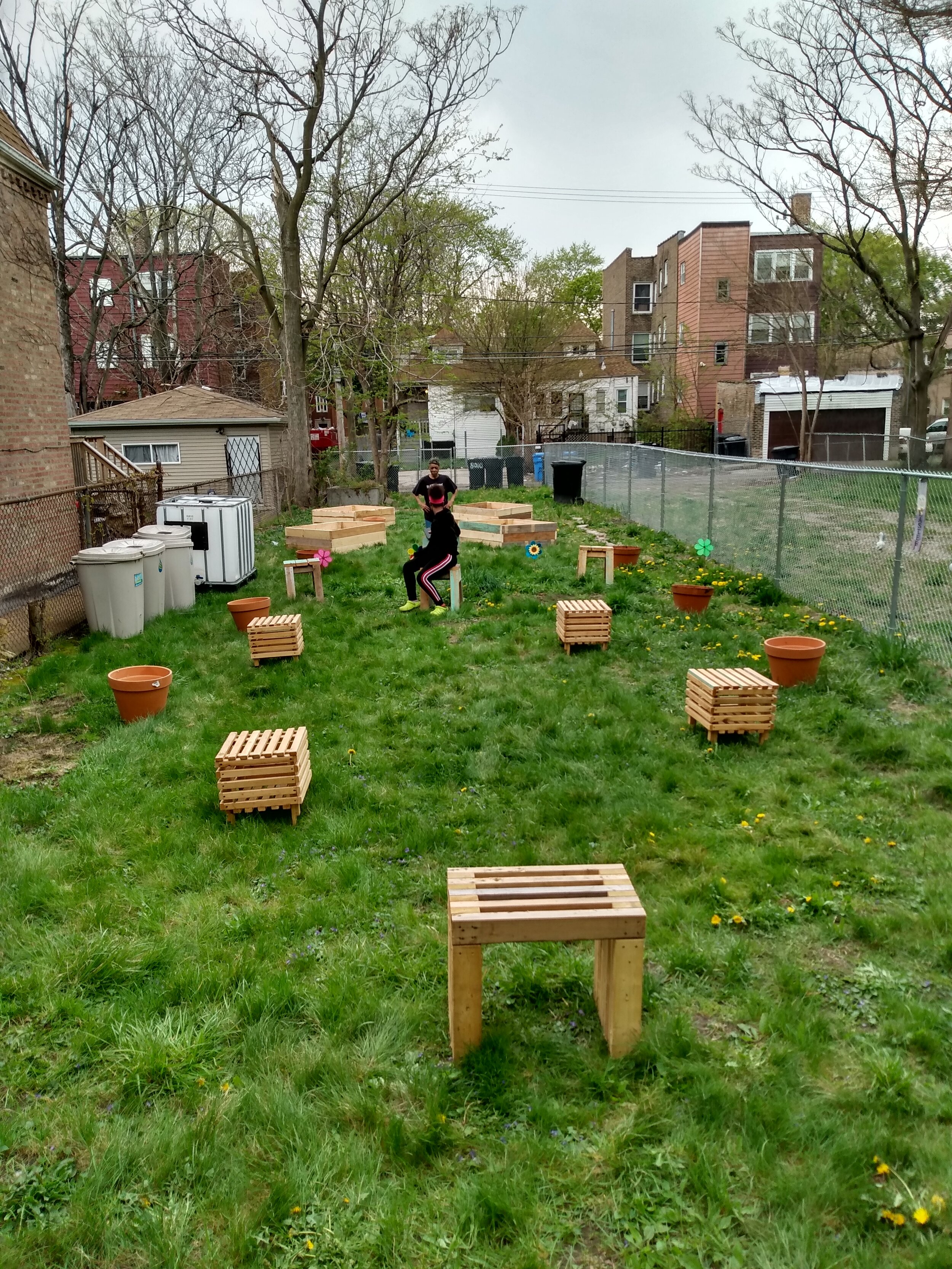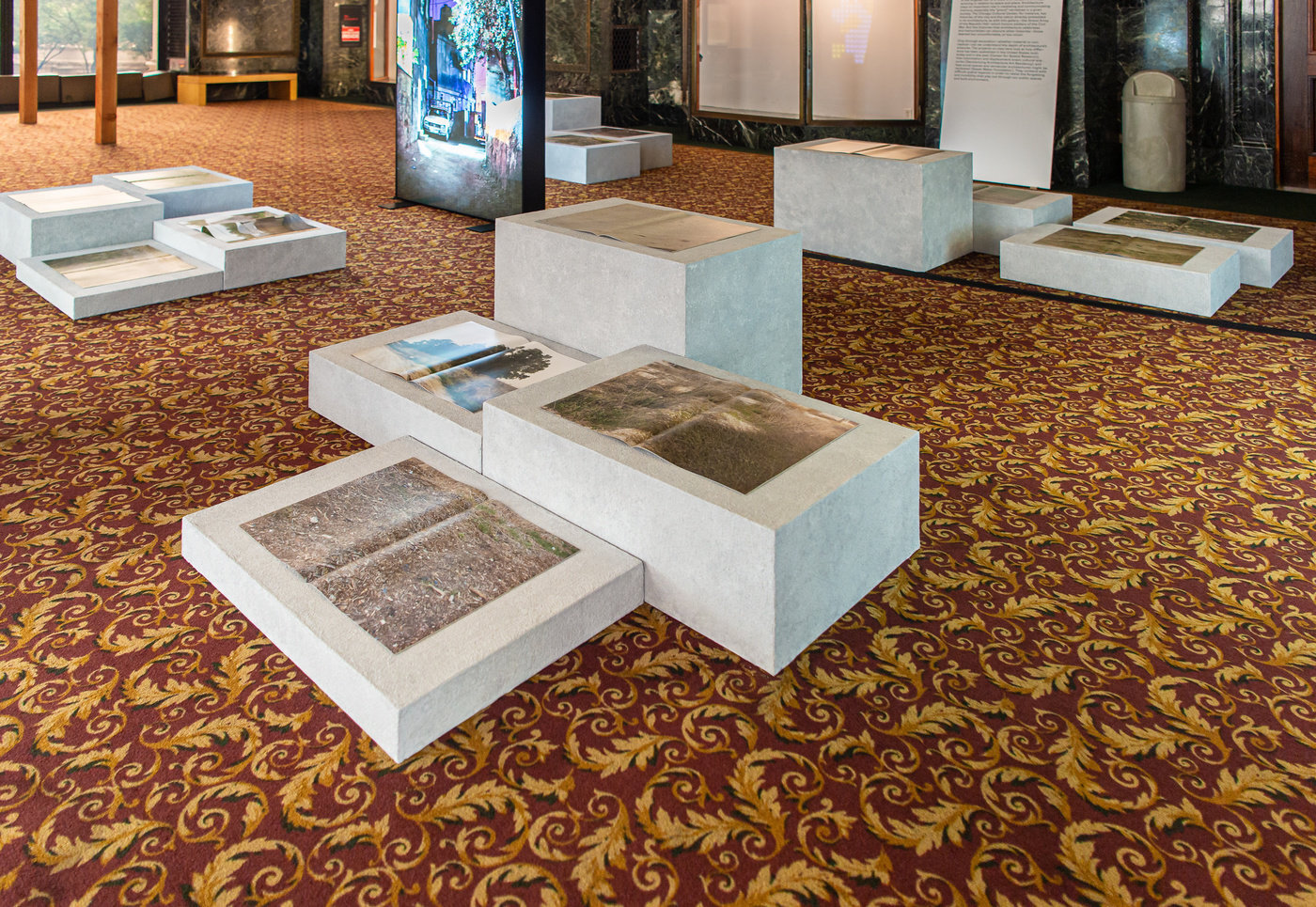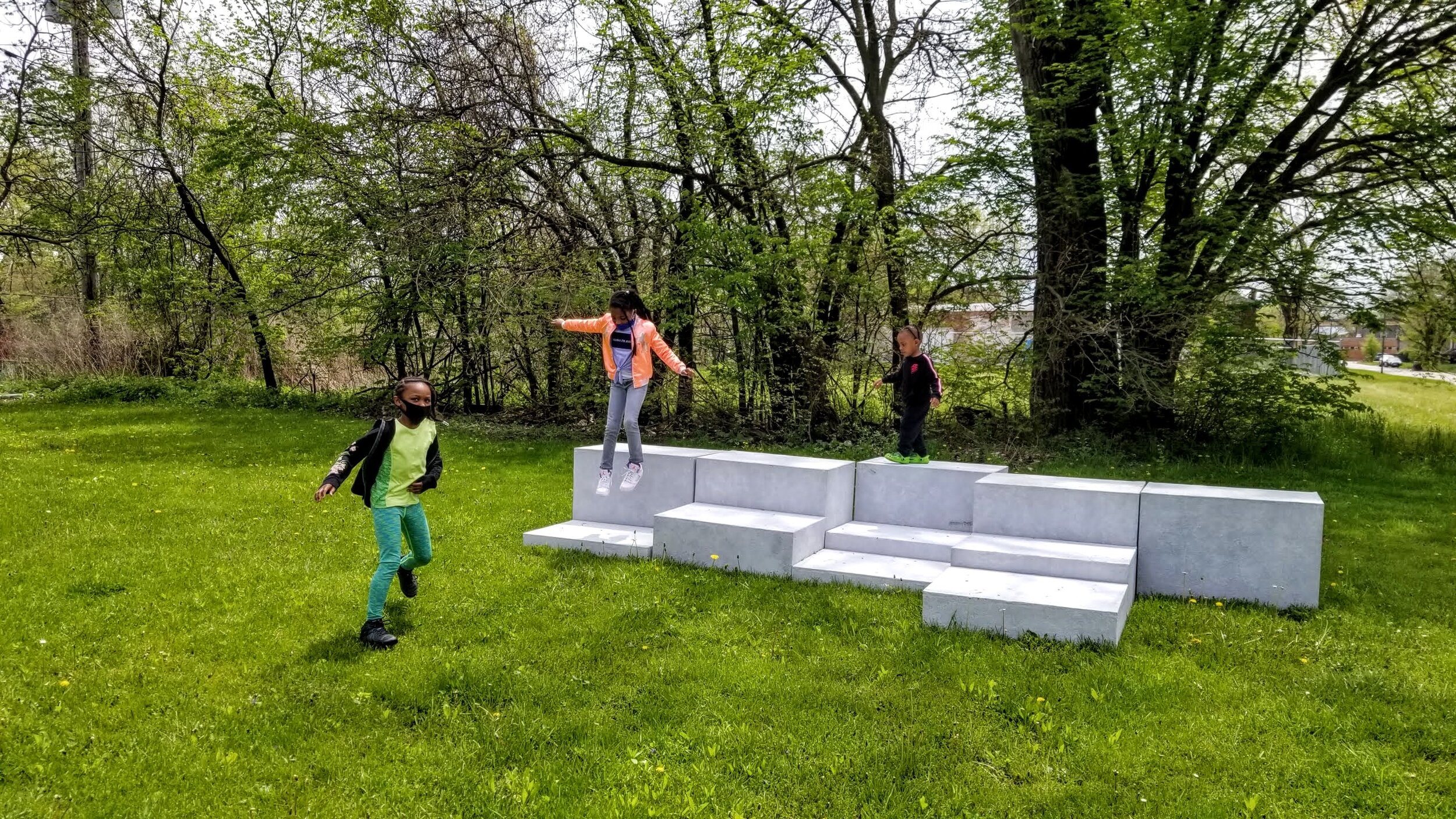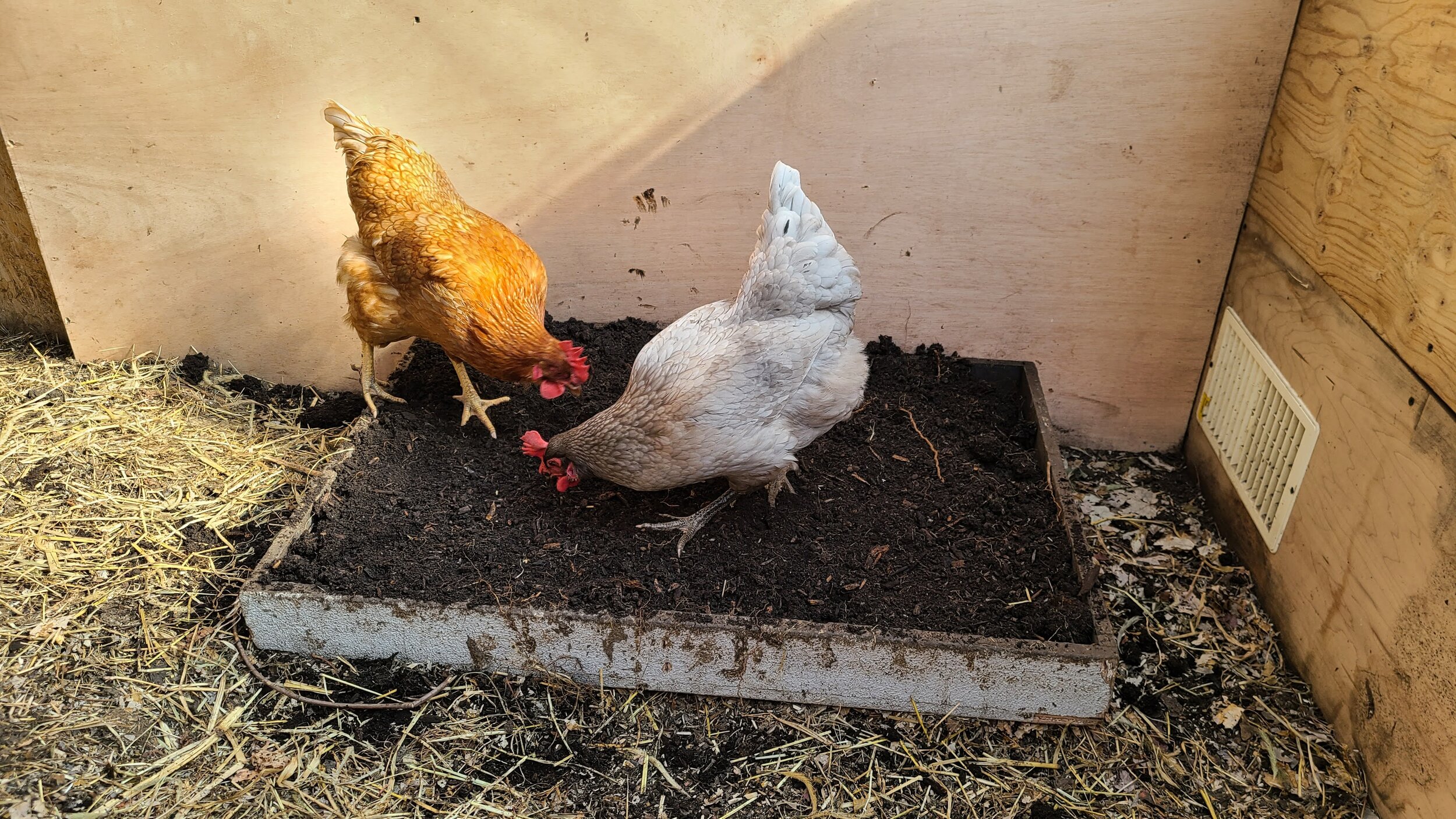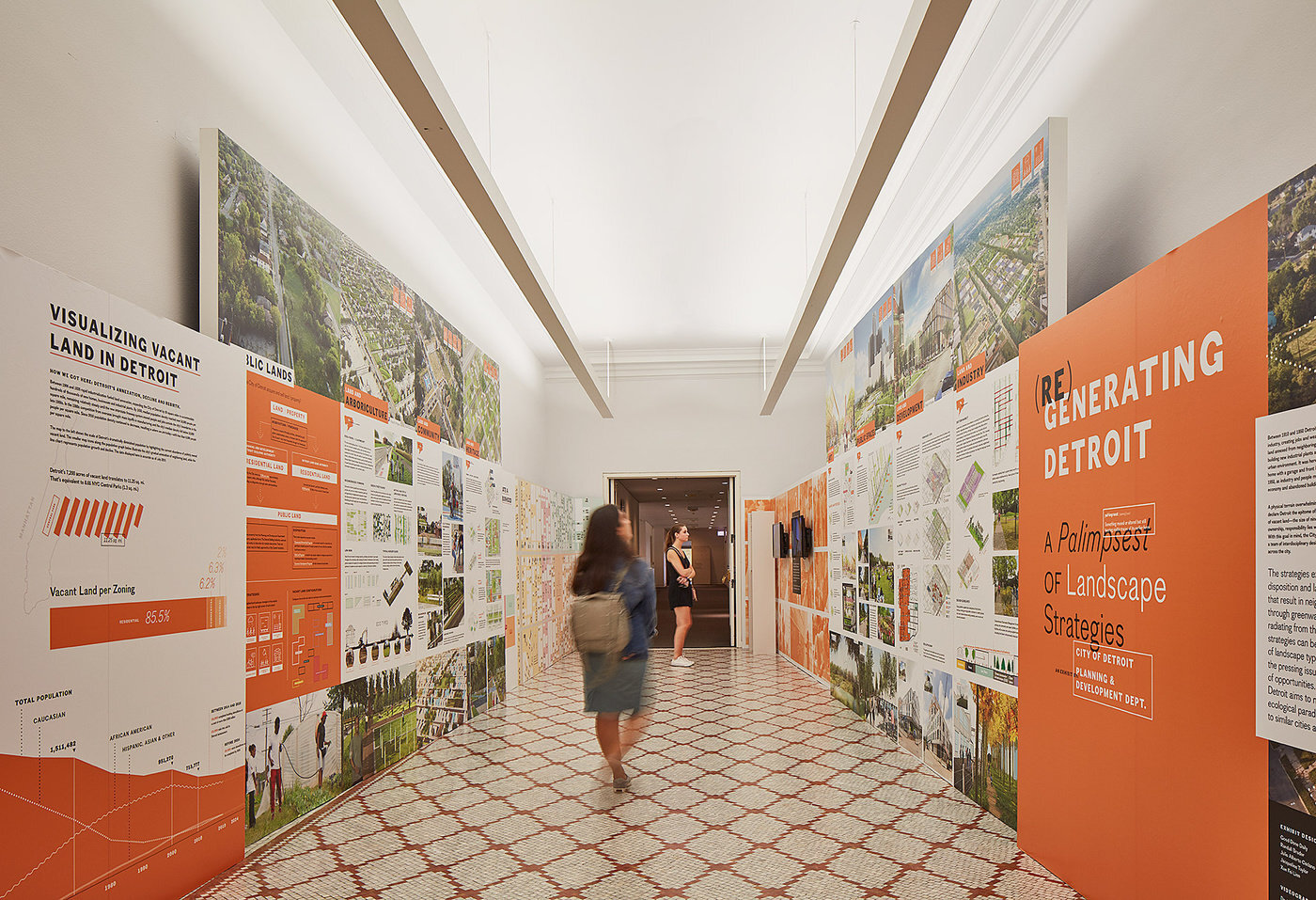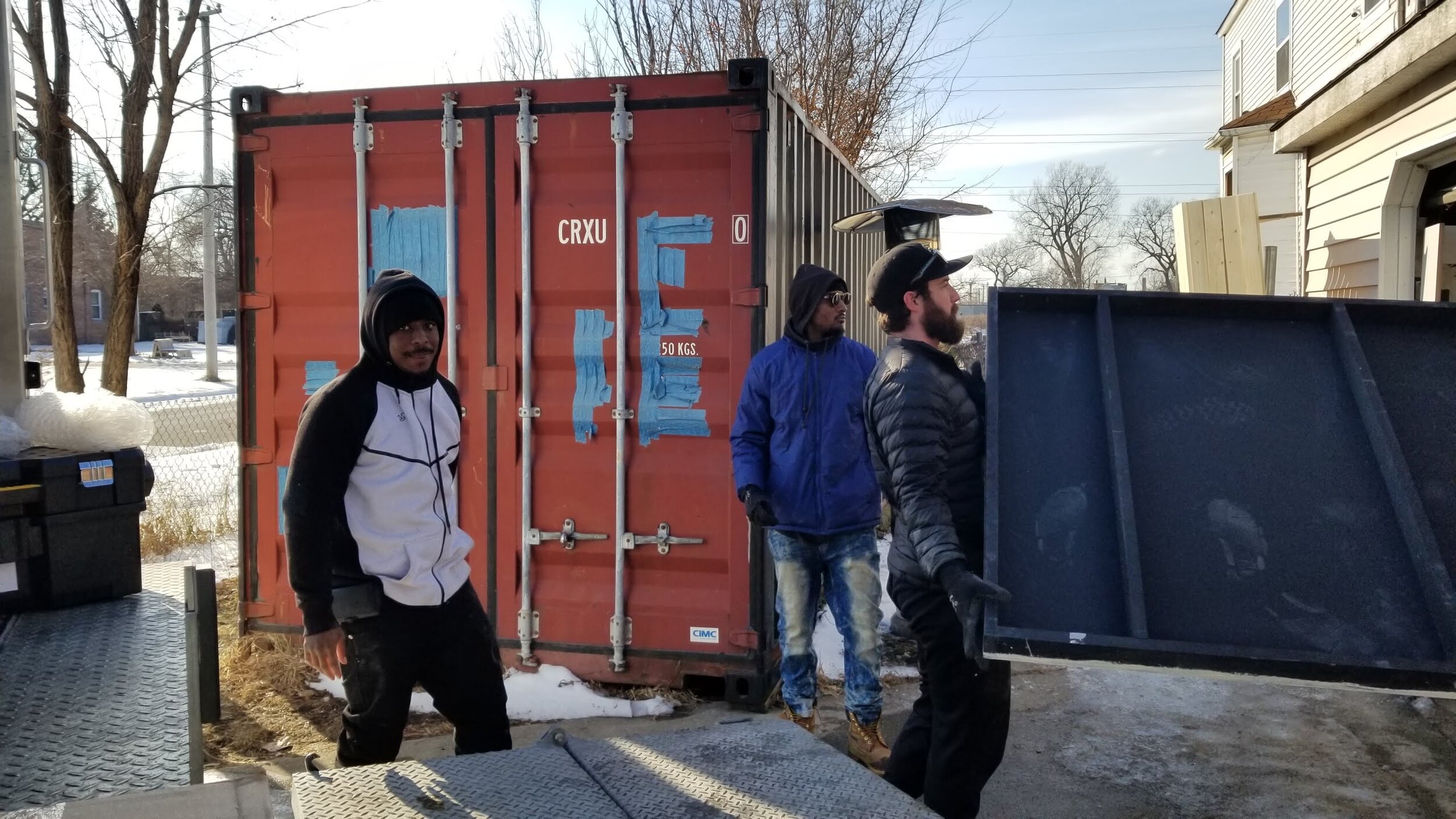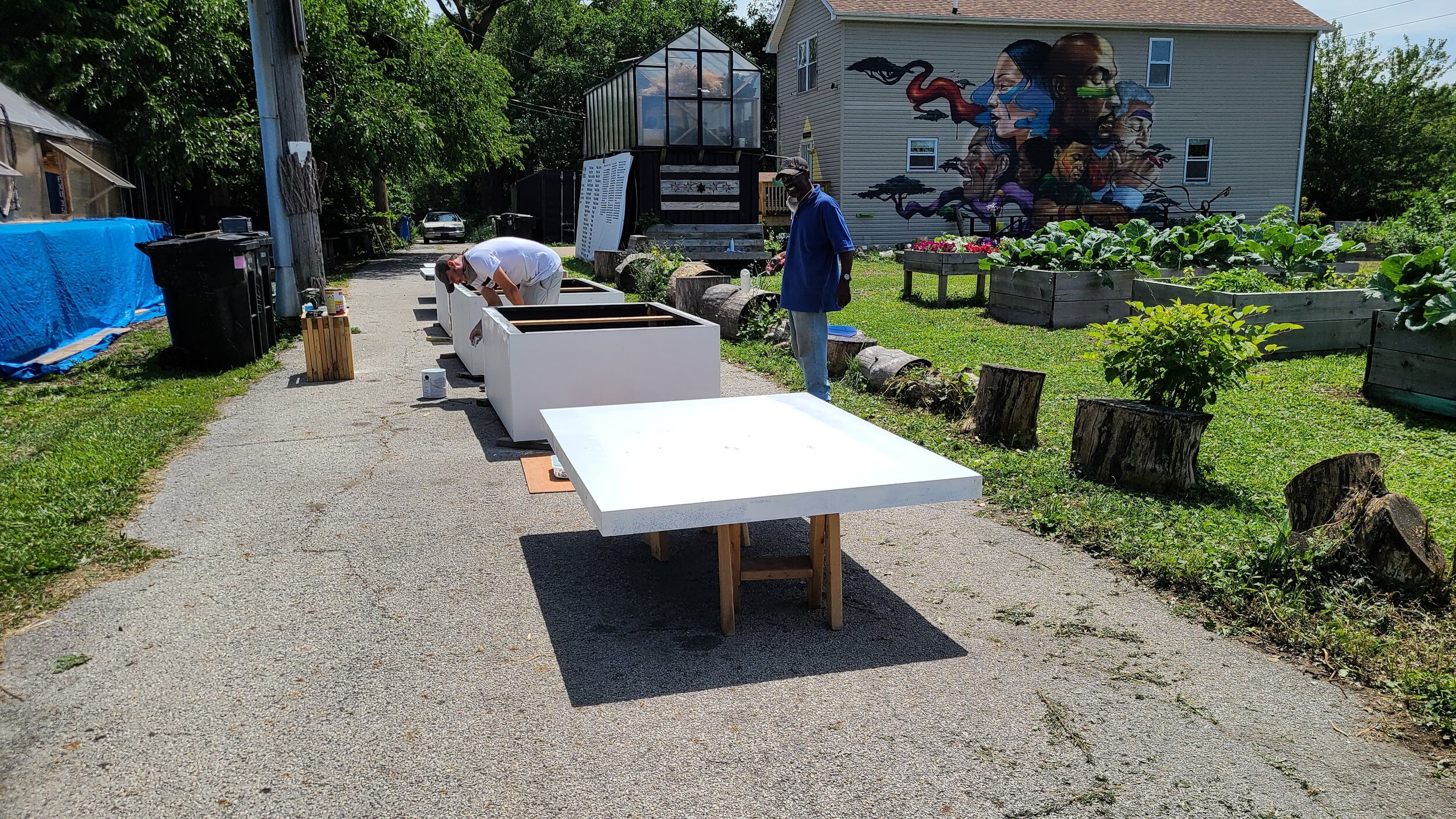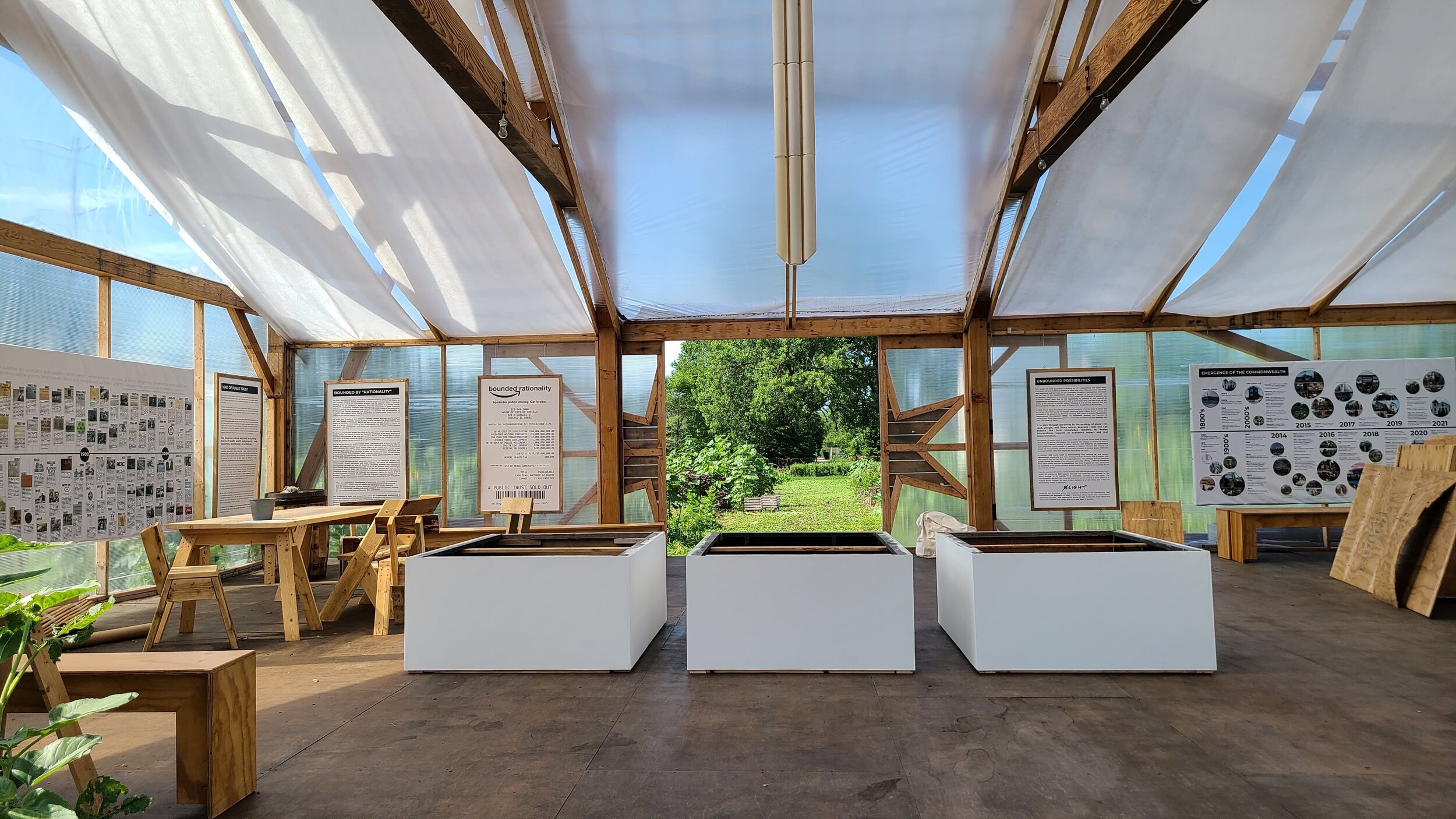Transforming ‘Wastes To Resources’
Nearly every week, Sweet Water Foundation receives a phone call or email inquiring as to whether the SWF team would be interested in acquiring materials destined for landfills. Because transforming ‘wastes to resources’ is at the heart of SWF’s practice of Regenerative Neighborhood Development, SWF seeks first to utilize the vast waste streams of the city for materials as we grow the neighborhood.
We reclaim crates and pallets from traditional development projects, wood chips from trees cut down across the city, tools and equipment reclaimed from closed schools, and the steady stream of materials used in temporary installations at art galleries, museums, and art/architecture schools with neither plans nor forethought for future use. True to our values, SWF welcomes the materials to The Commonwealth, deconstructs them, and then builds furniture, crafts home goods, and constructs public structures from these so-called wastes, deflecting them from landfills. Read on to learn more about a few examples of the transformation of ‘wastes to resources’ at The Commonwealth.
Crate + Pallets to Garden Beds | The Waste Stream of Traditional Development Projects
The majority of the wood that SWF salvages arrives in the form of crates or pallets, typically after the delivery of glass for development projects that range from housing or corporate projects in the loop or North side of Chicago, university projects, or public transportation projects (i.e. bus shelters, subway stations). Unfortunately, this wood, a natural resource from a mature, living tree, is discarded like a candy wrapper.
Since the beginning of 2021 alone, SWF has received and/or picked up more than 200 pallets and crates, deconstructed them, and transformed them into garden beds, chairs, benches, picture frames, and more. Simultaneously, SWF has received more requests than ever before from community members for garden beds and outdoor furniture to grow their own food and reclaim spaces in their neighborhoods. One group, Mama Moore’s Smart Garden first visited The Commonwealth in April 2021. The Commonwealth and practice of Regenerative Neighborhood Development resonated with them and inspired them to reimagine a garden they had begun to cultivate on their own block.
After the SWF team visited their site, SWF hosted a carpentry workshop with local residents from the Mama Moore’s Smart Garden network to build their own garden beds from reclaimed crates + pallets. Through the process of diverting wood from the waste stream, a community garden has been completely transformed.
Bamboo Poles to Pavilion | The Waste Stream of Art Exhibits
In early 2021, Sweet Water Foundation was invited to acquire thousands of bamboo poles that might otherwise be discarded after a student public art installation at University of Chicago. Light Fantastic, was a public art installation of light-centric sculptures around the UChicago campus designed and built by undergraduate students in Winter Quarter 2021.
SWF was excited to introduce bamboo as a new form of natural building material to The Commonwealth. Bamboo, which is technically a grass, has a strength-to-weight ratio capable of building structures and is also a perfect tool for trellising plants such as tomatoes, cucumbers, and sunflowers. The SWF team journeyed to the Reva and David Logan Center for The Arts at the University of Chicago to pick up 2 truckloads of bamboo poles.
Since receiving the poles, the team has experimented with lashing techniques to hold the bamboo poles together for various purposes. The team was inspired to create two new shade structures on the SWF Community Farm and put their new lashing techniques to work. The Bamboo Pavilion now provides much needed shade on hot days and is a great play and rest space on the farm.
Exhibit Displays Get New Life at The Commonwealth | The Waste Stream of Art Exhibits
Over the years, Sweet Water Foundation has reclaimed wood and other materials used as plinths at museums, art galleries, exhibitions, and art, architecture, and design schools. Plinths are bases upon which artwork and artifacts are displayed in museums and art galleries, and are typically boxes made of wood, metal, or glass. Because plinths are most always custom made for exhibits, they are usually discarded after an exhibition ends.
SWF generally deconstructs plinths to access the raw materials with which it is made (e.g., 2 x 4’s, plywood, etc.). Recently, however, the SWF team got very creative when finding new life for these so-called ‘wastes.’
Most recently, SWF creatively repurposed discarded plinths from the 2019 Chicago Architecture Biennial. Faux cement plinths from the DAAR exhibit were used to temporarily transform a vacant parcel into a play space. Surprisingly, these plinths also made for a perfect chicken dust bath to keep the hens happy during cold and snowy winter months. Large plinths from the Regenerating Detroit exhibit were deconstructed, modified, reconstructed, and painted to hold the centerpiece work of SWF’s upcoming exhibit, We The Publics...from Bounded Rationality to Unbounded Possibilities.
Sweet Water Foundation welcomes the opportunity to continue transforming ‘wastes to resources’ and demonstrating a new, eco-logical approach to art, architecture, design, and neighborhood development.


